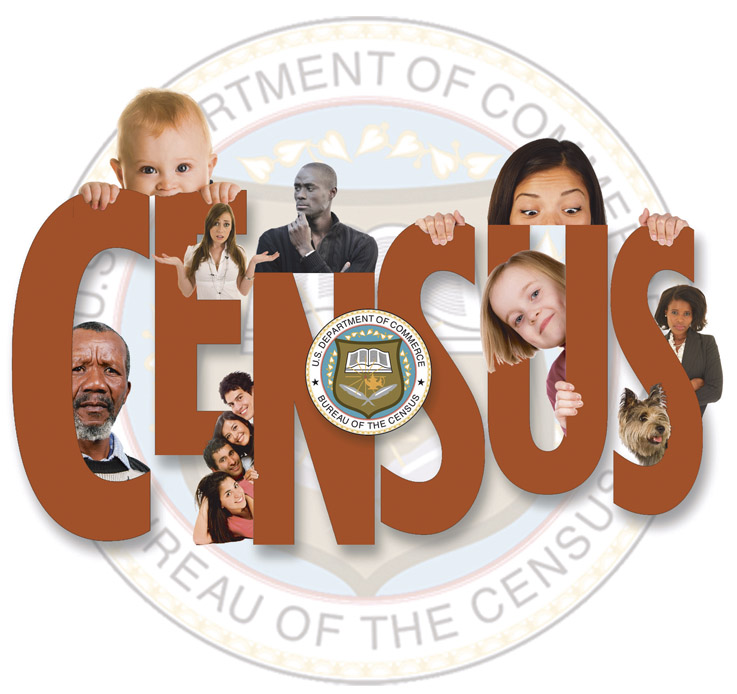WASHINGTON — We are a nation of people who will turn over our credit-card numbers to someone on television guaranteeing rock-hard abs in two minutes a day.
All too many of us are inclined to believe that a Nigerian lawyer will pay us handsomely if we just let him use our bank account to transfer a small fortune.
And we have no problem Facebooking, Twittering or YouTubing our toe fungus issues, binge-drinking episodes or children’s transgressions to millions of others online. So what explains why some fear the U.S. Census? It came in the mail last week. It’s sitting on your kitchen counter, mocking you. Do you dare open it?
There are dozens of Web sites urging Americans not to respond to the 10 questions on the 2010 survey of our country’s population. Some Libertarians think that it’s an invasion of our privacy and that the government should buzz off; there are people offended by the form’s racial classifications; and there are folks who think it’s the government’s way of pinpointing us for more nefarious purposes, like deportation or tax liens.
In 2000 only 61 percent of Mainers sent the survey back without further prompting, below the national rate of 67 percent. The District of Columbia also had a low response rate, 65 percent.
Response in some cities was so bad that the Census Bureau launched a gimmicky marketing campaign to get people to participate in this year’s count. Dora the Explorer is in schools trying to get to parents through their kids. There is a U.S. Census racer on the NASCAR circuit. The agency has a 13-vehicle road tour that made a stop at the Super Bowl.
This historical lack of participation is especially heartbreaking in the District of Columbia, where we mourn our “taxation without representation” yet are reluctant to be counted when the time comes.
D.C. council member Michael A. Brown, the council liaison for the census, told The Post that D.C. residents who aren’t responding might be worried about some of the myths circulating about the census. He said some people think that if they fill out the form, the government could come after them for unpaid parking tickets.
Really? People think that D.C.’s Department of Public Works needs the federal government to find you and your illegally parked car?
No worries, fellow traffic scofflaws: The census workers will not be the ones to rat us out.
Census workers are bound by law and oath to protect the personal information they gather. Plus, don’t you think Google already knows much more about us?
The government wants to know how many people live in the house, whether we own it, how we classify ourselves racially, how old we are and our gender.
But our computer knows whom we wrote to, what we bought, where we vacation and what our medical concerns are. It even has the audacity to suggest certain diets and laser surgery procedures. I don’t think the U.S. government would do that with our data, which it uses to mete out more than $400 billion in federal money, mostly for health, transportation, housing and education.
Anyhow, the questions really have evolved over time.
In 1850, the census was a lot more like the Google data aggregators of today. It asked Americans to describe whether they were “deaf, dumb, blind, insane, idiotic, pauper, or convict.”
So now we laugh at how silly that sounds. But maybe, 100 years from now, people will have a laugh at our unwieldy attempts to classify ourselves by race.
This has always been a difficult question. The Census Bureau has a whole division dedicated to figuring out the best way to accurately portray who we are as a people and where we come from.
The first census, in 1790, asked for a list of free white males, free white females, other free persons and slaves.
It wasn’t until 1850 that people were given the option of describing themselves as “White, Black or Mulatto.”
And even this year, the word “Negro” is offered as an option for people to use to describe themselves, something that set off an uproar.
There are movements afoot that say we should simply ignore the attempts to classify us by skin color, ethnic origin, nationality and so forth. They are urging everyone to skip all the way to the box that says “Some other race” and print the word “American.”
This assumes that we are becoming a post-racial society, with a president whose mother was a white American and whose father was a black African, and that we have evolved beyond the need to classify ourselves, right?
The problem is, when a group of people protesting the initiative to overhaul health care heckled black lawmakers at the Capitol on Saturday, it wasn’t the word “American” that they shouted at them.
On second thought, perhaps we ought to bring back the “Idiot” classification.
Send questions/comments to the editors.



Success. Please wait for the page to reload. If the page does not reload within 5 seconds, please refresh the page.
Enter your email and password to access comments.
Hi, to comment on stories you must . This profile is in addition to your subscription and website login.
Already have a commenting profile? .
Invalid username/password.
Please check your email to confirm and complete your registration.
Only subscribers are eligible to post comments. Please subscribe or login first for digital access. Here’s why.
Use the form below to reset your password. When you've submitted your account email, we will send an email with a reset code.